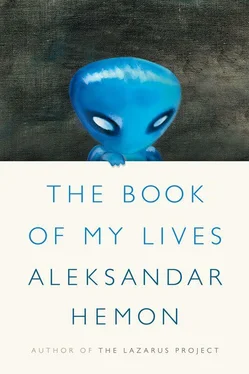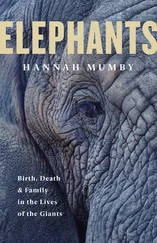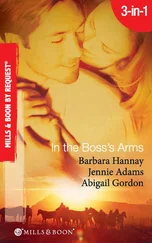The question was, obviously, deeply racist, so some of the culturally sensitive foreigners would initially be embarrassed by her counterquestion, but after some hesitation they would press on, while the locals would just press on without hesitation — my sister’s knowledge, her very existence was unknowable until she ethnically declared herself. Finally, she would say: “I’m Bosnian,” which is not an ethnicity, but one of her two citizenships — a deeply unsatisfying answer to the international bureaucrats of Bosnia, bravely manning government desks and expensive restaurants.
Instructed by my sister’s experiences, when asked “What are you?” I am often tempted to answer proudly: “I’m a writer.” Yet I seldom do, because it is not only pretentiously silly but also inaccurate — I feel I am a writer only at the time of writing. So I say I am complicated. I’d also like to add that I am nothing if not an entanglement of unanswerable questions, a cluster of others.
I’d like to say it might be too early to tell.
My father spent a couple of years in Zaire in the early eighties, constructing Kinshasa’s electric grid, while Mother, Kristina, and I stayed at home in Sarajevo. In the summer of 1982, he came back home to take us to Zaire for a six-week vacation whose highlight would be a safari. I was seventeen, Kristina four years younger. We’d never been abroad, so we spent sleepless nights imagining everything we would experience that summer. The days, however, I spent watching the soccer World Cup, as I’d vetoed the possibility of going anywhere before the tournament was over. Once Yugoslavia was, as usual, eliminated early and embarrassingly, I became heavily invested in the Italian team. A couple of days before we left, I cheered for Italy in the World Cup finals, in which they beautifully beat Germany 3–1.
The World Cup over, we were on our way to Africa. The first stop was Italy, as we were supposed to catch an Air Zaire flight to Kinshasa at Rome’s Fiumicino Airport. At the airport we discovered that the flight had been canceled without explanation and until further notice. Father handled it all: he argued with the Air Zaire representatives; he retrieved our suitcases; he showed our passports to the Italian border-control officer. We were to wait for our flight at a hotel in a nearby town, to which we took a crowded shuttle.
Kristina and I were impatient to see what all the brouhaha over being abroad was about. What we saw during the shuttle ride was not all that impressive: nondescript buildings flying Italian flags; shop windows sporting pictures of the national soccer team, the Azzurri. Ever a great wrangler of silver linings, Father promised us that we would go to Rome, which was half an hour away by train, as soon as we had settled in at the hotel. He was our leader in this foreign world: he spoke in stern and bad English to the airport staff; he located the shuttle and got us on board; he exchanged money and dispensed it from his little manpurse with the confidence of a man used to international currencies. Kristina and I proudly bore witness to his negotiating two rooms for the Hemon family. He was conspicuously tall in his azure shirt, winking at us, entirely comfortable with all the worldly matters at hand.
But then, suddenly, dark fields of sweat appeared on his shirt, and he started frantically pacing the lobby. His manpurse was gone. He ran outside to see if he’d left it in the shuttle, but the shuttle, too, was gone. In garbled English, he yelled at the receptionist. He randomly interrogated guests and service staff who happened to enter the lobby. His shirt was now covered with sweat; he reeked of an imminent heart attack. Mother, who had previously idled in the lobby flipping a Rubik’s cube, tried to calm him down. We still had the passports, she said; it was only our cash that had been stolen. (Coming from the promised land of socialism, we had no credit cards.) Several thousand American dollars , Kristina and I realized in horror. All of our vacation money .
Thus we found ourselves penniless in an obscure Italian town, unable to go to Rome for a day trip, let alone to Africa for a safari. The possibility of our simply giving up on being abroad and returning to Sarajevo was real and devastating. The hotel looked at a long wall, over which ugly, thirsty trees peeked at the displaced tourists. Father was on the hotel phone making calls, informing his co-workers in Zaire that we were stuck without money somewhere in Italy, hoping they could help him get the hell out of it, or find a way back to Sarajevo, or on to Zaire. In the process, he found out that the Kinshasa flight had been canceled because a Zairean army general had kicked the bucket and the dictator Mobutu had requisitioned all three Air Zaire intercontinental aircraft to fly his large entourage to the funeral.
The next day, Father was still obsessively analyzing every moment of the unfortunate trip from the airport to the reception desk, retracing his every step to determine at which point the clever thief struck, which would help identify him. Running out of clean shirts, he eventually came to the conclusion that the theft had taken place at the reception desk and reconstructed the full sequence of events: Father had put his manpurse down on the counter while filling out the forms, and, when he turned to wink at us, the receptionist had slipped it under the desk. Consequently, Father installed himself in the lobby, intently monitoring the receptionist — a handsome, innocent-looking young man — and waiting for him to make a revealing mistake.
Kristina and I had nothing to do. We listened to our Walkman, shareable because it had two outlets for earphones. We tried to watch television in our room, but even the movies were dubbed in Italian (although that afforded us a precious sight of John Wayne walking into a saloon full of bad guys and saying: “ Buon giorno! ”). We wandered around the nameless town, excited, in spite of everything, to be experiencing the world: there was the vague smell of the Mediterranean, as if the town were on the sea; the lush variety of design in the pasta store around the corner; the intense redness of the tomatoes and the din of bartering at the local market; shops packed with the things that socialist teenagers coveted (rock music, denim clothing, gelato); taverns full of loud men watching replays of the World Cup games and reliving the triumph. (I wanted to watch the finals all over again, to see Marco Tardelli screaming in celebration after scoring the second goal, but Kristina objected.) When everything shut down for the noon siesta, we trailed a group of suntanned young people, assuming that their final destination was fun, until we ended up on an entirely unanticipated beach. It turned out the town was called Ostia and that it was, in fact, on the coast.
Returning from our expedition, eager to deliver the good news, Kristina and I found Father sweating like a hysterical hog and glaring at the receptionist from a far corner of the lobby — a veritable self-appointed hotel detective. Even after a couple of shifts on the watch, he’d failed to catch the suspect in another act of stealing or to collect any evidence against him. From where we stood, his aura of leadership was sadly diminished. When we announced that we’d discovered salt water, Mother finally abandoned her Rubik’s cube and took charge.
First, we went with her to a jewelry store we came upon around the corner, where she sold her favorite gold necklace after a hard bargain. Then she distributed the money; Father, for obvious reasons, did not get any at that time. Kristina and I instantly went to the music store where we’d already browsed; we pooled our money to buy a cassette tape of David Bowie’s Low . When we came back with our treasure, Mother informed us that we were required to participate in an evening family walk. I still cherish the memory, which fully contains all the smells, sounds, and visions from the evening when the Hemons leisurely strolled along the Lido, as if on vacation , the parents holding hands, as if in love , the children licking gelato paid for with family gold. In the middle of a catastrophe, the Hemons managed to scrounge up some makeshift joy.
Читать дальше












